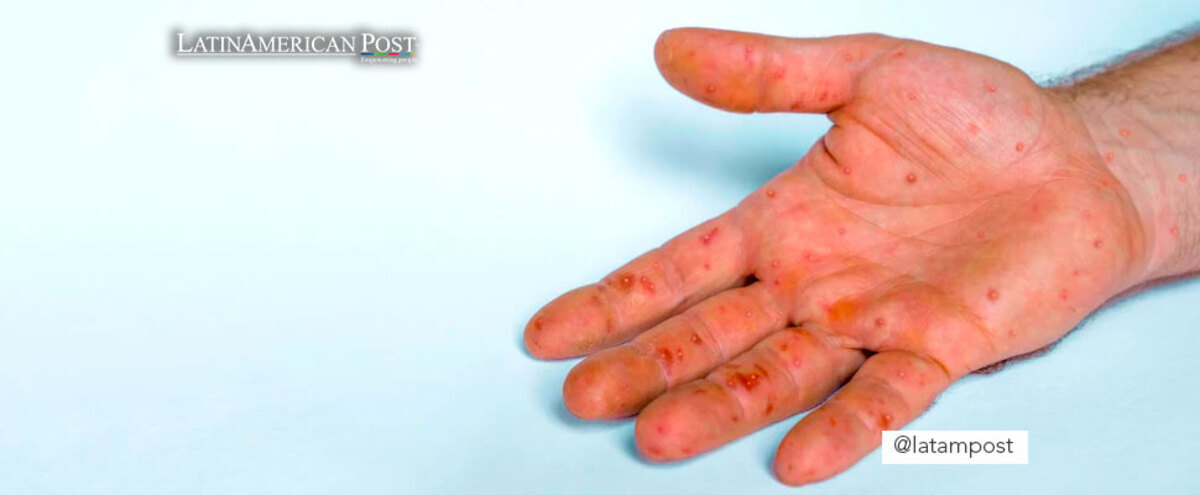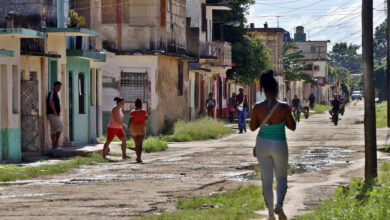Monkeypox Is An International Emergency. What Can We Expect?
The World Health Organization (WHO) has declared monkeypox an international public health emergency. Are we facing a new pandemic?

Photo: Freepik
LatinAmerican Post | María Fernanda Ramírez Ramos
Escucha este artículo
Leer en español: La viruela del mono es una emergencia internacional ¿Qué se puede esperar?
Since May 2022, monkeypox has been monitored for atypical behavior: it began to spread through various regions, going beyond the borders in Africa, where it was an endemic disease in several countries for more than 5 decades. To date, the WHO has reported its presence in 75 countries around the world, with more than 16,000 cases and 5 deaths. The International Health Regulations Emergency Committee declared the disease outbreak an emergency of international importance.
This committee had already met a month ago, but there were only 3,040 cases in 47 countries. However, its rapid growth and atypical behavior led the Committee to set off global alarms. This was announced by WHO Director-General Tedros Adhanom Ghebreyesus, who noted that: "The WHO assessment is that the risk of monkeypox is moderate globally and in all regions except the European region, where we assess the risk as high. Despite the fact that, at the moment, the highest alarm is in Europe, the risk of international spread exists, although there are still no effects on international traffic."
We recommend you read: Infographic: This is everything you need to know about monkeypox
Are we facing a new pandemic?
At the moment, the declaration of an international emergency does not mean that it is a pandemic. However, it does set off an alert for all the governments of the world, which must also apply the lessons that the coronavirus taught them. However, it should be noted that it is a disease with a lower level of transmission. Although it can be transmitted with bodily fluids, smallpox requires closer contact with these fluids. For this reason, it is less likely to spread as quickly as the coronavirus did.
On the other hand, studies so far show that the smallpox vaccine can protect against monkeypox. So even though smallpox was declared eradicated on May 8, 1980 by the World Health Assembly, many people are already vaccinated against smallpox. Likewise, it is possible to reactivate vaccination plans and protect the most vulnerable population, as well as stop the spread if we act quickly.
However, there are still many unknowns to be resolved, because despite the fact that it is an ancient disease, only in Africa had they been faced with controlling it. Likewise, there is still no complete clarity about its current behavior. In fact, transmission patterns different from those of traditional smallpox have been found. The WHO and other health institutions, such as the CDC in the United States, have identified that the majority of infected patients have had sexual contact with someone infected. In this sense, it seems that contagion occurs more through prolonged skin-to-skin contact than through a simple brush.
In this regard, the New England Journal of Medicine published a study carried out in 16 countries to evaluate the new symptoms of monkeypox. The findings indicated that up to 95% of infections occurred through sexual contact . Likewise, genital lesions and sores in the mouth and anal area are appearing. "The current spread of the virus disproportionately affects gay and bisexual men, with 98% of those infected from this group. Although sexual closeness is the most likely route of transmission in most of these cases, the researchers emphasize that the virus can be transmitted by any close physical contact through large respiratory droplets and potentially through clothing and other surfaces.
Work with risk groups is a priority
Despite the fact that it is a disease that has multiple transmission mechanisms, the trend indicates that there are a number of groups more likely to be infected. Among them are men who have sex with other men, people with multiple sexual partners, and health personnel, due to their contact with patients. In this sense, it is essential that prevention strategies are aimed at these groups vulnerable to the disease. Also, an infected pregnant mother can pass it to her unborn baby, according to the US Centers for Disease Control and Prevention, CDC.
However, it is also necessary that there is no stigmatization, as this would make it difficult to detect cases. It is a disease that anyone can present and for which it is essential to activate prevention and early warning networks.
Dr. John Thornhill, a professor at Queen Mary University of London, an expert in sexual health and HIV, and an author of the New England Journal of Medicine study, points out that monkeypox is presenting symptoms similar to other sexually transmitted diseases, such as anal and genital pain. Likewise, it indicates that although the transmission is occurring mainly among men, anyone is susceptible to becoming infected. Then, he points out that “it is important to emphasize that monkeypox is not a sexually transmitted infection in the traditional sense; It can be acquired through any kind of close physical contact."
Undoubtedly, this emergency calls for global action against any disease. Although Africa has had cases of monkeypox for decades, the international community has not made all the necessary efforts or made it a priority to stop the outbreak in the Republic of Congo and other countries. Already in 2017, the biologist Anne Laudisoit, dedicated to researching this disease, had pointed out in an interview for the newspaper El País that "As long as there is not a white with monkeypox that presents pustules and a rash as if it were smallpox, everything will remain the same".




